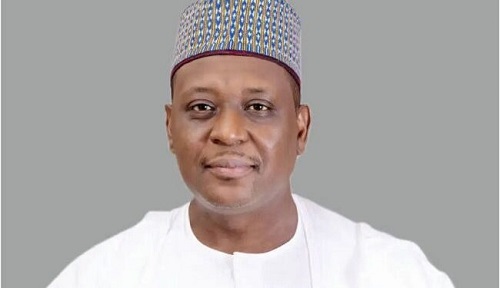The Federal Government has expressed commitment to accelerate progress on Sustainable Development Goals’ priority for adolescents and young people as a smart investment in the future of society, economy and the planet.
The Coordinating Minister of Health and Social Welfare, Prof Muhammed Ali Pate at the event of Global Forum for Adolescents said the Federal Government of Nigeria has recognized the well-being of adolescents as an approach to achieving Sustainable development goals(SDGs) to shape the society, economy and the environment.
According to Pate: “The government is committed to improving adolescent well-being and accelerated the priority of the SDGs for adolescents and the young people as a smart investment in the future of the society, economy and the planet.
“Also commute to prioritize adolescent well-being and the SDGs priorities in the national development plans and strategy to ensure disaggregated data collection for better understanding and opportunities for ensuring adolescent well-being and to integrate adolescent specific indicator into the monitoring and reporting framework by meaningful engaging the adolescent themselves and young people in the design implementation and monitoring process that affects their well-being.
“On behalf of the government of Nigeria, we commit to strive to increase the financial commitment in the policies
that we make and also develop programs, and service delivery actions to improve adolescent well-being.
“The federal government of Nigeria is totally committed to all efforts directed in the realisation of adolescent and young people’s potentials in nation building and for them to become healthy adolescents now, in the future and flourishing adolescents in the future by making this commitment.
The Coordinating Minister also said the government agreed to register its commitment to the SDGs summit acceleration and accountability platform
“We commit to a systematic report on the implementation involved in those commitments through the existing follow-up process including the voluntary national review process.”
He, therefore, said, “It is essential to adopt the whole government approach to address the multiple challenges that are affecting adolescent well-being in Nigeria.
Earlier, the Permanent Secretary represented by Jummau Aisha Abdullahi, SA to Permanent Secretary emphasized that globally, there are about 1.8 billion adolescents and young people (ages 10-24), adding that this sub-population constitutes a chunk of productive demography.
The Permanent Secretary also stressed that this is a unique stage of human development and an important time for laying the foundations of good health.
“We are gathered here today to mark the Nigeria national event because Nigeria recognizes the unique place of adolescents in our demographic composition. In addition, Nigeria prioritizes the special challenges of adolescent health and well-being.
“Projected population of Nigeria states that adolescents (10-19 years) constitute 22% of Nigeria’s population while young people (age 10-24 years) constitute about a third (32%). According to the 2021-2025 National Policy on Adolescent and Young People, states that Young people in Nigeria are diverse and heterogeneous in terms of socio-demographic characteristics, health needs, and social and health vulnerabilities hence the need for special attention to this demography.
“It is on this basis that the Federal Ministry of Health in collaboration with youth-led organizations such as Education as a Vaccine (EVA) and PLAN International organized this national event which is being live-streamed on various social media platforms.”
In their goodwill message, the WHO representative commended the government of Nigeria for today’s milestone in commemoration, hereby reaffirming that the commitment to adolescent well-being to achieve the SDGs goals by Investing in the young people will also boost the country’s economy with great benefits.
“Global forum for adolescent partners with partners to improve the well-being of Nigeria and by holding the government accountable for the well-being of adolescents.”



